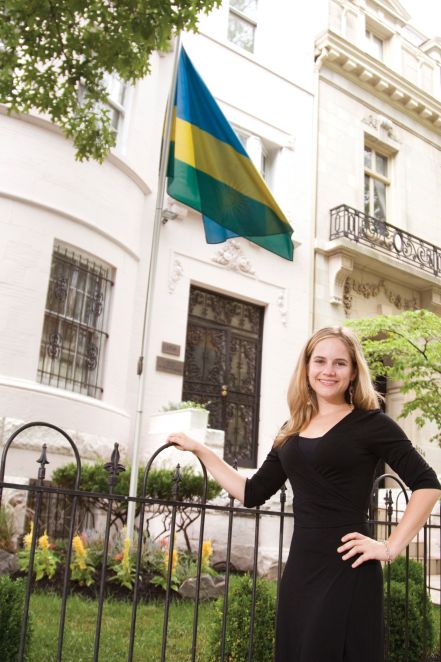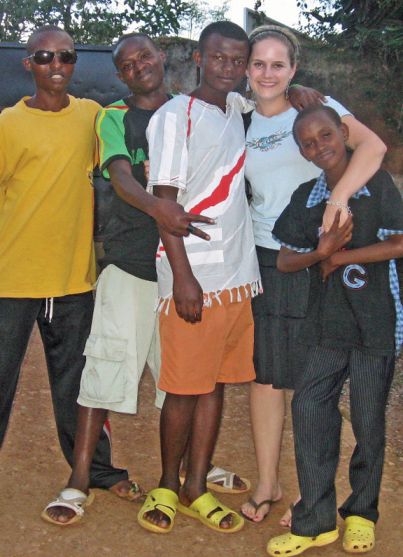
The day then-sophomore Elizabeth Davis read an in-depth article about the horrific 1994 genocide in Rwanda—in 100 days in 1994, an estimated one million Rwandans were slaughtered in an ethnic bloodbath—was the day she tied her destiny to Africa.
Shortly after graduating from Peabody in 2006 (with a double major in HOD and political science), she headed there.
Today she is partnering with government officials and private-sector professionals to build a new training facility—the Rwanda Arts and Vocational Institute (RAVI)—to help young people orphaned or traumatized by the genocide.
Despite Rwanda’s history of unspeakable pain, Davis sees a bright future being reborn.
“There’s so much hope and opportunity in Rwanda,” she says.
Davis splits her time between Washington, D.C., and the African nation, focusing on the new vocational institute initiative.
She is eager to correct misperceptions about Africa, including the paternalistic western notion that Africans cannot help themselves.
“Rwandans are making investments, making changes, instead of outsiders telling them what to do. I provide a voice for what they’re already doing.”
Davis, a Florida native, came to Vanderbilt because of the HOD program, which allowed her flexibility to follow her interest in studying alternative international development strategies and nonprofit activism.
“With HOD you can really pursue what you’re passionate about. There’s emphasis on working with teams and dealing with people in all their complexity.”
At Vanderbilt, she served as president of the anti-genocide coalition STAND, as an officer in Students for Kenya, and as co-founder of Fashion For A Cause.

Her focus now is on Rwandans who want to overcome their heartbreaking recent history. The genocide still haunts the nation. Public memorials to victims are everywhere. Buildings remained damaged. Many who perpetrated the violence are back in society. Much reconciliation remains to be done in a country of 1.2 million orphans.
Many teens today live on the street, where they are also head of the household, taking care of younger orphaned siblings.
RAVI wants to give them a new start. Groundbreaking is planned for next year, with the first students arriving January 2010. Initial programs will include culinary arts, hospitality and construction.
Davis is busy raising the first $1 million to build the school, securing land, consulting with partners and architects. She hopes to raise another $3 million in three years with help from individuals and corporations. (See www.africagrassroots.org.)
“It’s been 14 years, but that’s a baby step in terms of healing,” Davis says.
“They’re an incredibly forgiving people, trying to move forward. You have to start with the kids. If there’s going to be change, you work with this generation—bring them together, show them they can play soccer with others from other ethnicities—show them what it means to say ‘one Rwanda.’ ”
Rwanda is also showing an HOD alumna what it means to be a world citizen.
“It means taking an interest in creating global dialogue, global community. Otherwise, you miss out on sources of wisdom that are different from what we’re used to. When I came to Rwanda, I knew this is where my heart was.”